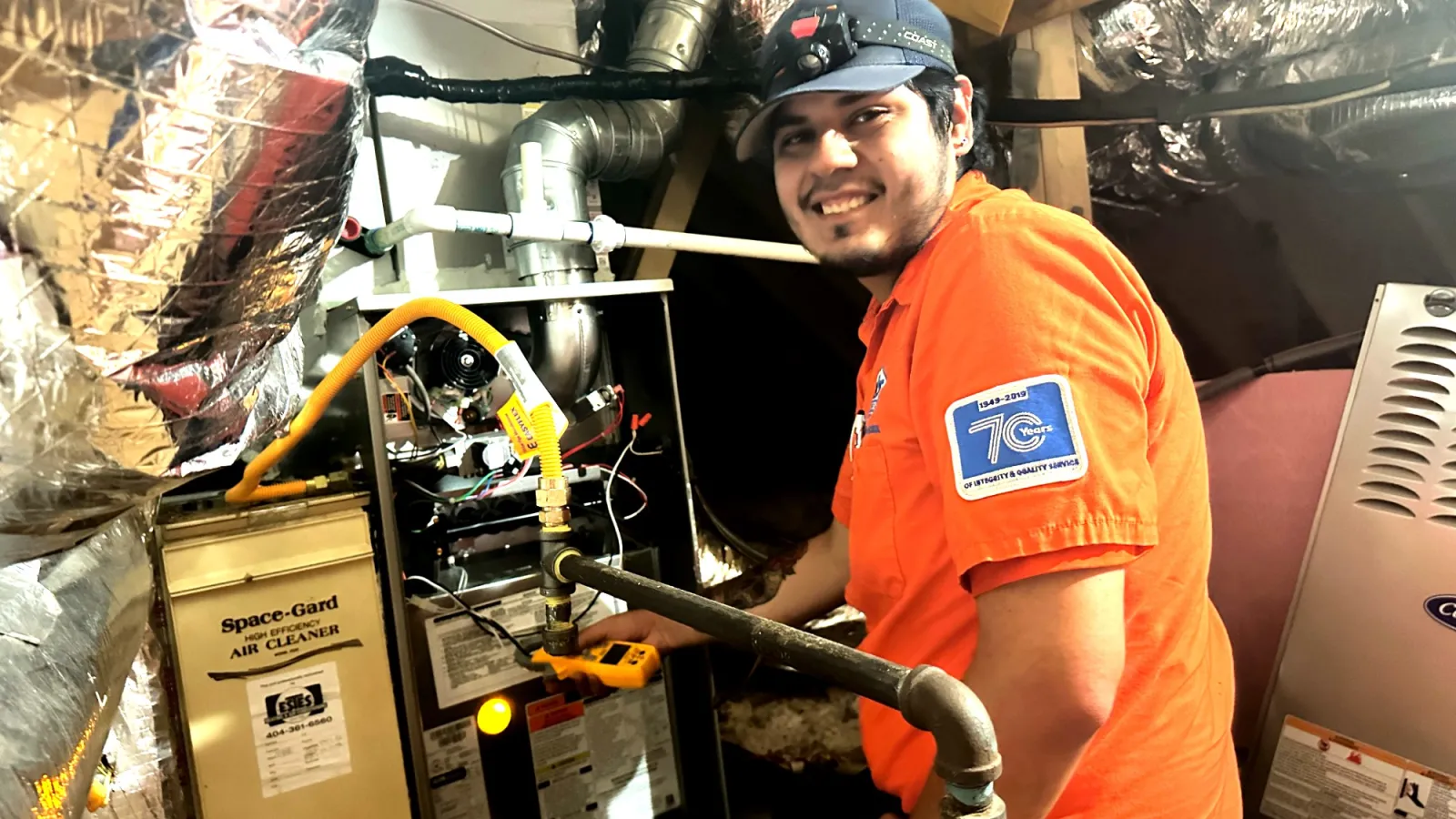Choosing a new heating system for your Atlanta home can be a difficult decision. When you’re looking for a new heating system, though, you’ll probably narrow it down to two possible options; heat pump or furnace. Which is the best option for keeping your Atlanta, GA, home warm this winter?
Each system will heat your home effectively and keep you comfortable during the colder months, but each will come with their own sets of advantages and disadvantages. Ultimately, the decision comes down to what is best for your home and unique needs. Everybody is different and has their own preferences, so it’s important to consider what is most important to yourself and your family before making a decision. In our most recent blog, we take a look at the differences between heat pumps and traditional furnaces.
How Does a Heat Pump Work?
Heat pumps remove heat from the air outside your house by using electricity, and then transfers it into your home. Heat pumps are comprised of two units: an exterior unit and an interior unit, which circulates warm air throughout your home.
Pros and Cons of Heat Pumps
Like almost anything else, heat pumps in Atlanta have advantages and disadvantages, including:
Pros:
- Energy Efficient: Heat pumps don’t need much electricity to heat your home. In fact, compared to furnaces, heat pumps reduce your home’s heating electricity use by approximately 50 percent.
- Eco-Friendly and Clean: Heat pumps run on electricity and never have to generate their own heat.
- Safety: Because they don’t burn fuel and require minimal electricity to move heat, heat pumps present no risk of fire or dangerous carbon monoxide leaks.
Cons:
- Outdoor Temperature Limitations: Heat pumps are less efficient than furnaces when the outdoor temperature is much below 50 degrees.
- Could Require Supplemental Heating: If the outdoor temperature drops too far below freezing, you may need a supplemental heat source, such as electrical heat strips, to keep your home warm during the cold weather.
- Lifespan: When proper maintenance is consistently performed, heat pumps will generally last around 10 to 15 years. This is about half as long as the typical furnace functions. Heat pumps are complex machines and typically run virtually all year long, compared to other heating systems that only run in winter.
How Does a Furnace Work?
No matter if your furnace is powered by gas, oil, or electricity, all furnaces are standalone units installed inside your home that use some sort of power source to generate heat in the unit’s heat exchanger. Once heated, warm air circulates throughout your house via your home’s air ducts.
Furnace Pros and Cons
Consider these benefits and potential drawbacks of Atlanta furnaces, including:
Pros:
- Reliability: Because it makes its own heat, a furnace will heat your home regardless of the outside temperature. No matter if it is 45 degrees or -5 degrees outside, a furnace will burn fuel and heat your home.
- Lifespan: Furnaces are less complicated machines than heat pumps, so they tend to last longer. In fact, the average lifespan of a furnace is 15 years but can be longer with consistent maintenance.
- Less maintenance: Most homeowners use a gas furnace for a few months out of each year, and furnaces have fewer mechanical parts than a heat pump. In general, they have fewer maintenance requirements and malfunction less often.
Cons:
- Safety: It’s important to stay on top of your furnace and have consistent maintenance performed. Without regular maintenance on your furnace, a gas leak or other malfunction could possibly develop. This could produce dangerous results, such as an explosion, fire, or lethal carbon monoxide poisoning.
- Cleanliness: Gas furnaces produce heat through the process of gas combustion, which can produce soot and decrease your home’s indoor air quality.
- Doesn’t Provide Cooling: Furnaces can only heat air, unlike a heat pump. To cool your home in the summer, you’d also need to invest in an air conditioning system.
Let Estes Help You Decide Between a Furnace or Heat Pump
If you need help choosing a heating system for your home, don’t hesitate to contact the professional heating and air conditioning technicians at Estes Services. Call us today to schedule a free in-home consultation.


